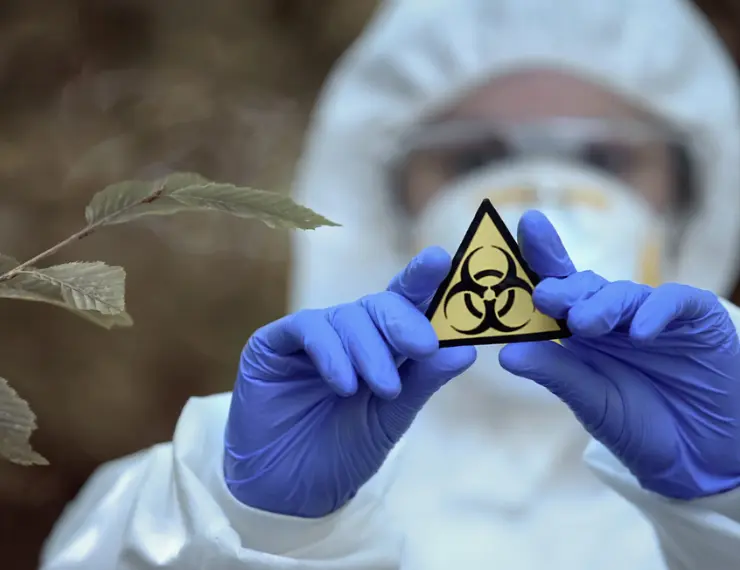
With microplastics being flagged in the news these days, some folks are starting to take note more of environmental toxin exposures and their impacts on health, including increasing cancer risk and endocrine disruption. Here are a few ways you can help keep your environment cleaner and safer for you and your family.
1) Install a Systemic HEPA air filter – especially if people have allergies or if you simply care about the air quality in your home, it might be worth getting a systemic HEPA filter that attaches to your air-conditioning unit, which allows for more systemic air filtration throughout the house. Within an hour of running it, it can clean the whole house. Some companies that do this include Carrier. Of note, you would need to change the filter every 6 months or so.
2) Get non-toxic health, beauty and cleaning products – Some resources for helping to distinguish between products and their multitude of ingredients include the “Think Dirty” app, where you can search in a database of thousands of sunscreens, lotions etc. and see the rating from 0 (non-toxic) to 10 (highly toxic) how many ingredients are suspect. Another website resource for this is www.EWG.org. Also, Beautycounter is a brand I recently learned about that is committed to creating safe and effective products (including skin, makeup, hair and fragrance products) that are non-toxic and environmentally conscious. The company also advocates and has managed to get the legislature to implement better regulations in the beauty industry and aims to educate consumers about the potential harm of harmful ingredients found in everyday products. All of their products are formulated without harmful chemicals such as parabens, phthalates, synthetic fragrances, and other potentially toxic ingredients.
3) Manage exposure through cookware and Tupperware – Many people know to avoid plastic Tupperware and water bottles as much as possible in favor of glass Tupperware and bottles to minimize microplastics in food and beverages. However, a newer revelation is also avoiding plastic cutting boards, as recent evidence suggests these are a source of microplastics in our food; instead, use wooden cutting boards, for example. Also, use stainless steel pans that are 18/0, meaning no Nickel, preferred to avoid nickel leaching into food; because stainless steel is not magnetic, you can test its purity by putting a magnet to its surface – important, checking both the inside and outside of the pan to assess for alternate metals. Also, it is important to avoid “non-stick” cookware – it typically has a chemical coating that can come out in food.
4) Install an excellent water filter – if you’re living in a permanent residence, consider installing reverse osmosis with a carbon water filter in your kitchen sink or where you get most of your drinking water from, as this is one of the more powerful options for water filtration. Not necessary to filter dishwasher, shower or other water – the water you consume is the highest yield. With regards to fluoride risks in water, Stanford professor Dr. Andrew Huberman has a very helpful post on that topic also discussed on his podcast – I’ll include a small excerpt from his article here: “Many pitcher filters (e.g., Brita) can filter some disinfectant byproducts but do not trap smaller particles, notably fluoride.” Here are some alternatives he discusses:
- “< $100: pitcher filters that include fluoride filtration (e.g., ClearlyFiltered Pitcher)
- $400: countertop filters for larger water volumes (e.g., Berkey Filters)
- $800+: whole house water filters (e.g., Aquasana Filters)
- Zero-cost option: rest 1-5 gallons of water, uncapped, at room temperature for ~1 day. Sediment will fall to the bottom, so you can pour off the top two-thirds for drinking.
- Note: do not opt for boiling tap water as a filtration method because high heat can actually make contaminants worse.”
5) Change dishwasher filter, air-conditioning filter and other house filters: Make sure to keep up-to-date on your filters or dust off the filters you have. For example, did you know that the filter in your dishwasher needs to be cleaned at least once annually, because it gets full of food? Consider setting calendar reminders for yourself with these items in the title as a reminder.
Overall, there are several ways you can make a difference in your life and the life of your family, especially when you consider the impact of these changes over the course of years in reducing risks of cancer, endocrine disruption etc.
Read Also: Saunas: Major Health Benefits, Where And How To Use
Maia Mossé, MD, February, 2024
Call The Village Doctor at (650) 851-4747 or Contact us to learn more about the practice.


